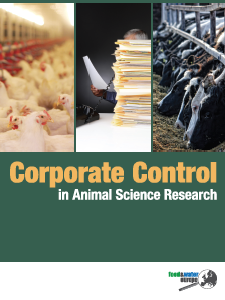Brussels/Washington, DC – Today, 200 groups from both sides of the Atlantic released an open letter to EU Commissioner Miguel Arias Cañete and U.S. Energy Secretary Rick Perry, calling on the EU and U.S. administrations to immediately stop the transatlantic trade in fracked hydrocarbons.
Yesterday, the Department of Energy announced that Secretary Perry would be attending the EU-US Energy Council High-Level Forum in Brussels on May 2 – paving the way for a new Trans-Atlantic Trade Agreement with imports and exports of U.S. fracked gas at the heart of the deal. According to data released in early March, EU imports of liquefied natural gas (LNG) from the U.S. have increased by 181% since July 2018.[i]
The letter highlights that the continued use and import/export of fracked LNG torpedoes critical climate targets and violates basic human rights. In 2012, the UN Environment Programme (UNEP) issued a “Global Alert” on fracking, concluding that fracking may have environmental impacts even if done properly.[ii]
“The LNG trade is paving the way for prolonged use of fossil fuels and plastics, creating a twin environmental and human rights emergency,” said Wenonah Hauter, Executive Director of Food & Water Watch and Food & Water Europe. “Governments on both sides of the Atlantic are failing to do what it takes to stand up to fracked gas interests and prevent looming climate chaos.”
The signatories state that new gas infrastructure has a significant economic lifespan (usually between 30 and 50 years) that goes beyond the point when we must fully decarbonize our energy systems. Ongoing use of fossil fuels like gas would also have devastating economic impacts on both sides of the Atlantic.
The letter also refers to what activists call the #Fracking4Plastics link, highlighting that the plastics industry has reaped under-the-radar benefits from the environmentally destructive fracking boom and an oversupply of cheap ethane. This surge has been a boon for the plastics industry, which relies on petrochemical manufacturing to turn ethane, a hydrocarbon present in natural gas, into plastics.
Beginning in 2012, chemical companies started aggressively investing in petrochemical plants and export facilities focused on tapping the ethane glut, creating further negative implications for human and environmental rights.
“The EU is importing U.S. fracked gas to create plastics,” says Andy Gheorghiu, policy advisor at Food & Water Europe. “Europe is throwing away a stable climate for a throw-away society.”
Signatories include Food & Water Watch, Food & Water Europe, Friends of the Earth U.S. and EU, Greenpeace, Break Free From Plastic, European Environmental Bureau, Oil Change International, Rainforest Action Network, Talk Fracking, Health and Environment Justice Support International, Earthworks, 350, Corporate Europe Observatory, Rethink Plastic, Ocean Conservation Research, Frack Free United, Berks Gas Truth, SEE Change Network and Safety Before LNG.
Press contacts:
Andy Gheorghiu, Policy Advisor & Campaigner, Food & Water Europe, [email protected], +49 160 20 30 974
Scott Edwards, Legal Director, Food & Water Watch, [email protected], +1 202.683.4969
Further Links:
Open letter (.pdf)
_______________________________________
[i] See the European Commission Press Release
EU-U.S. Joint Statement: Liquefied Natural Gas (LNG) imports from the U.S. continue to rise, up by 181%
[ii] Read More about UNEP’s Global Environment Alert About Gas Fracking. 4 Dezember 2012.



